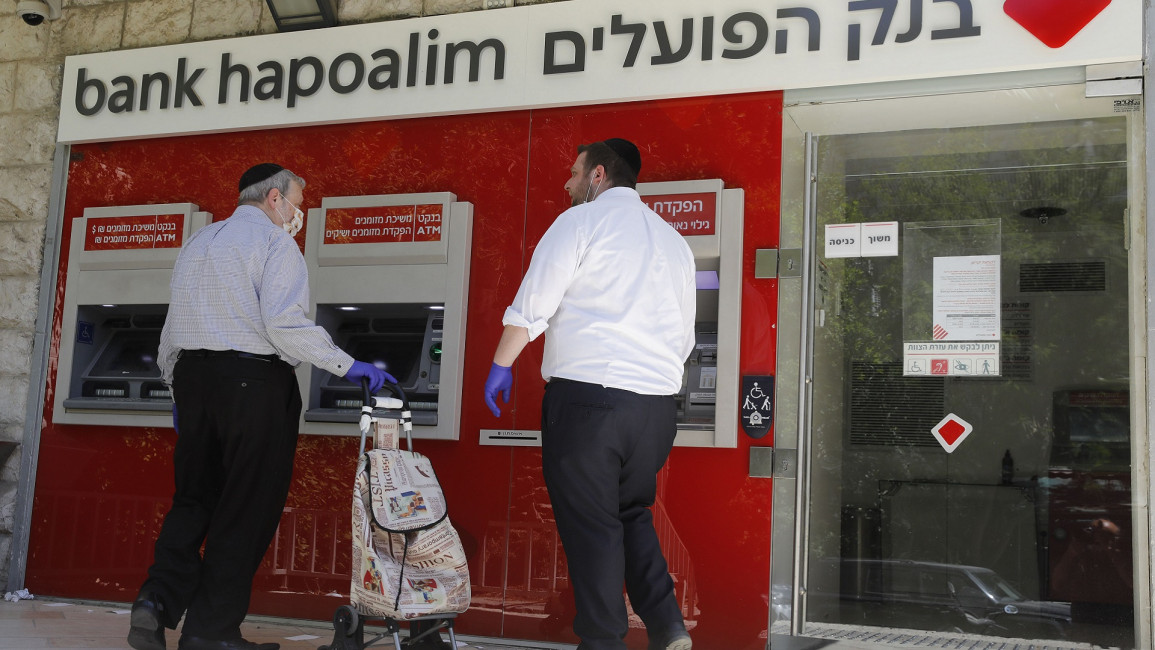Head of Israel’s biggest bank expects deals with UAE soon
Israel’s largest bank expects to strike deals soon with major lenders in the United Arab Emirates for the first time, its CEO said after meeting top Emirati business leaders on Wednesday. It was the latest development following a US-brokered deal to normalize relations between the two countries announced last month.
Dov Kotler, the head of Bank Hapoalim who led an Israeli business delegation to the UAE this week, told The Associated Press that financial agreements would follow the signing of the normalization treaty at a White House ceremony to be held on September 15.
Kotler’s visit comes a week after Israeli officials, accompanied by a high-level US delegation and ferried on the first commercial passenger flight from Tel Aviv to Abu Dhabi, reached understandings with their Emirati counterparts on trade, technology and investment among other issues.
“The spectrum is huge,” Kotler said, adding that it would investment in both countries’ stock exchanges and joint ventures in financial technology. “We’d like to have the [Emiratis] visiting us and doing mortgages in Israel, too.”
Kotler said Bank Hapoalim was in talks to partner with the three largest banks in the UAE, but declined to give their names or a timeline for the deals. First Abu Dhabi Bank and Emirates NBD are known as the country's top two.
Read also: Israeli company to shoot underwear campaign in UAE desert
After years of covert trade exceeding $1 billion annually by some estimates, the oil-rich Emirates and Israel, home to a thriving diamond trade, pharmaceutical companies and tech start-ups, are eager to make their ties public.
The UAE, a federation of seven emirates which are mostly dependent on petrodollars, is keen to cash in on the influx of Israeli investment and travel, particularly as the coronavirus pandemic shrinks demand for oil and slows tourism.
It hopes to lure Israeli entrepreneurs to set up shop and well-to-do expatriates to purchase luxury apartments in the coastal emirate of Dubai, which is struggling to cope with the financial fallout of the virus.
In anticipation of Israeli visitors, the UAE’s Department of Culture and Tourism asked on Wednesday that all hotels prepare to offer certified kosher food.
The UAE's low taxes, and lack of an income tax, is “certainly a point of interest" for Israeli business leaders, said Kotler. Still, he struck a cautious tone, warning that people need to “build trust” before business could boom, given the region's fraught history.
The Palestinians have fiercely opposed the Israel-UAE deal, calling it a “betrayal” and a “stab in the back” which undermines an Arab consensus that relations with Israel will not be normalized until it withdraws from all occupied Palestinian territory.
The UAE has claimed that its the deal was a tool to force Israel into halting its plans to annex parts of the Palestinian West Bank, even though Israeli Prime Minister Netanyahu said after the deal that the plan had only been delayed rather than cancelled.
The agreement may also help the Emiratis acquire advanced U.S. weapons systems that have been previously unattainable, such as the F-35 fighter jet.

Follow us on Facebook, Twitter and Instagram to stay connected



